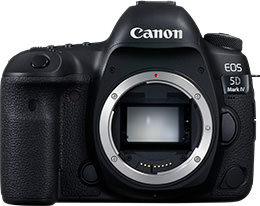Super Telephoto Landscapes: A Mysterious “Cave” in a Moss-Covered Gorge
Quiz time: Is the image below a) a deep cave or b) a gorge with steep cliffs? You would be forgiven for thinking it was a), but it actually is of the Tarumae Garo, an unusual moss-covered volcanic rock ravine in Tomakomai City, Hokkaido, Japan. Landscape photographer Katsuhiro Yamanashi shares how he used a super telephoto zoom lens to capture this mysterious atmosphere of the place. (Reported by: Katsuhiro Yamanashi, Digital Camera Magazine)

EOS 5D Mark IV/ EF100-400mm f/4.5-5.6L IS II USM/ FL: 400mm/ Aperture-priority AE (f/16, 0.8 sec, EV -1.3)/ ISO 800/ WB: Auto
Other equipment: PL filter
The story behind the shot
Located at the southern foot of Mount Tarumae, Tarumae Garo is a gorge with rocky walls densely covered in green, velvety moss. Being deep in the mountains, it is shrouded in an air of mystery, which I wanted to capture and convey. To that effect, I decided to use my super telephoto zoom lens to close in on the deepest part of the gorge, where wisps of river mist floated.
I was aiming to capture three sets of rocks (See "Composition/lens technique" below) from a certain angle to take full advantage of the perspective compression effect. To get all of them within the narrow angle-of-view, I had to place my tripod in the flowing river. In such situations, the water current could cause your tripod to shift, so take the necessary precautions against camera shake. I avoided using a shutter speed that was too slow.
Focal length: 400mm
The lens I used

EF100-400mm f/4.5-5.6L IS II USM
The river mist was visible only in the deepest parts of the gorge. To make the mist stand out, I chose to shoot at the longest focal length possible with the gear that I had on me at that time—400mm on the EF100-400mm f/4.5-5.6L IS II USM. The angle of view turned out to be perfect, with just enough of the river flow captured in the frame. The 4x zoom magnification on this lens worked very well, and I was satisfied with its resolving power.
The RF mount version for those on the EOS R system:

Composition/lens technique: Make use of the compression effect

The diagram above shows what the scene was like when zoomed out. The red rectangle shows the area that I zoomed into for the very first image in this article.
I framed the image so that the following three sets of rocks became the primary interest:
(1) The rock wall at the opening
(2) The concave rocks behind to the left, and
(3) The rocks all the way at the back that formed a triangle
The super telephoto focal length (400mm) resulted in a perspective compression effect that pulls in the rocks at the back and makes them appear more closely layered together. This created an image that conveys the cave-like depth of the gorge as well as that frightening feel of the unknown that lies beyond.
Incorporating (4), the particularly mossy rock in the left foreground of the image, further evokes the idea of a moist, wet environment.
You may also be interested in:
Professional Composition Techniques (3): Making Good Use of Lenses
Exposure: Use a slow shutter speed and negative exposure compensation
Blur the flowing river to add dynamism
I used a shutter speed of 0.8 seconds to turn the flowing river water into motion blur. As my tripod was in the river, a shutter speed that was too slow would result in visible camera shake, so I increased the ISO speed to 800.
Negative exposure compensation reduces the loss of detail in the flowing water
EV ±0

EV -1.3

This composition includes many dark rock forms. In certain metering modes, the camera will expose based on the darker parts of the rocks, causing the brighter details in the flowing water to be overexposed and blown out. For this shot, I used negative exposure compensation (EV -1.3) to retain the highlight details.
Sunlight reflecting off the wet moss and rocks could also result in blown highlights, but that can be prevented by using a polarising filter (PL filter).
Learn more about how using a telephoto lens could add a special twist to your landscapes in:
Creating a Captivating Scene with Telephoto Leading Lines
Telephoto Lens Techniques – Creating Multiple Layers of Bokeh
Telephoto Macro Technique: An Ordinary Leaf Gets the Limelight
Love photographing streams and rivers surrounded by green nature? Here are some more tips to capture your impression of the scene the way you envision:
Camera Settings for Photographing Misty Streams and Rivers
Picture Style Techniques to Level Up Your Landscape Photography
Receive the latest update on photography news, tips and tricks.
Be part of the SNAPSHOT Community.
Sign Up Now!About the Author
A monthly magazine that believes that enjoyment of photography will increase the more one learns about camera functions. It delivers news on the latest cameras and features and regularly introduces various photography techniques.
Published by Impress Corporation
Born in Tokyo in 1945, Yamanashi worked at a publishing company after his graduation from the Tokyo College of Photography (now known as the Tokyo Polytechnic University), and for 4 years, journeyed around Japan visiting and photographing famous sightseeing spots. After he left the company, he became a freelance photographer, eventually establishing his own company, Yamanashi Photo, in 1989. Besides taking stock images, he also provides photographs for corporate calendars, camera and travel magazines, and posters for Japan Railways.




































